Getting older is a privilege and not something that we should try to halt.
While we cannot delay getting older, we can try to take some control over it. Our lifestyle, environment, genetics and attitude to ageing have a huge part to play in how fit and healthy we are as we get older.
We might not be teenagers anymore, but we should still remember to have fun, socialise and be active.
For Older People’s Day this year, which falls on 1 October, we’re encouraging people to keep ‘feeling’ young by taking part in activities and events designed to protect their physical and mental health.
‘Full of Life’ events for older people
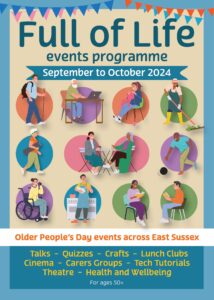
This year’s Full of Life booklet cover
One way to look after our wellbeing is to take part in activities. But it’s not always that easy. It’s hard making new friends, especially as people have busy lives and might find getting out and about isn’t as easy as it once was.
If that sounds like you, our ‘Full of Life’ programme of events could be just what you’re looking for.
The programme is a celebration of Older People’s Day, but the events take place throughout September and October.
Events range from film to yoga, coffee mornings to craft workshops. There’s something for everyone. All activities are designed to help you stay physically, emotionally and socially active. Hopefully you’ll find one near you.
You can pick up a copy of the ‘Full of Life’ booklet from libraries, council offices, and leisure centres.
East Sussex Seniors Association
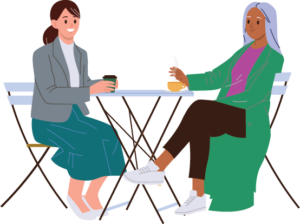
Each year we work with the East Sussex Seniors’ Association (ESSA) to organise the ‘Full of Life’ festival of events for Older People’s Day.
A good way to continue taking part in activities is to join a Seniors’ Forums near you.
They’re a great way to stay connected. Find a forum near you.
Staying active
It’s important to stay physically, emotionally and socially active as we get older. Being active isn’t just about exercise or sport. Gardening, shopping, household chores and walking all count and can help us to stay happy, healthy and connected.
It’s recommended we all get 150 minutes of ‘moderate activity’ per week (which should include some muscle strengthening). This sounds like a lot, but every minute counts. And any activity is better than none.
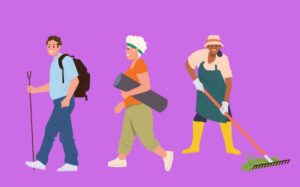
In 2020, the Chief Medical Officer said: ‘If physical activity were a drug, we would refer to it as a miracle cure, due to the great many illnesses it can prevent and help treat’.
When the Paris 2024 Olympics began many of us were inspired to be more active.
You don’t need to be the best at your chosen sport, though. Finding something you enjoy and feel comfortable doing will make it easier to continue doing it. A friend can make it more fun too.
So why not set yourself some small goals that you know are achievable and add it to your daily routine?
Brain health
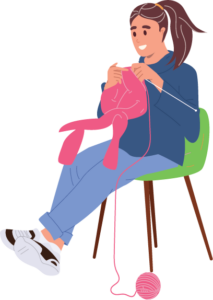 Staying mentally fit can involve many different things. For example, reading or learning new things.
Staying mentally fit can involve many different things. For example, reading or learning new things.
Looking after our brains may sound more complicated than looking after other parts of our body that we can see and touch. But it doesn’t have to be.
Did you know that factors such as health and diet might influence 40 per cent of dementia cases? Alzheimer’s Research has an online Think Brain Health Check-in that asks question to get you thinking about your lifestyle.
These three things can help:
- Love your heart: Looking after your heart by staying active or eating well can protect your brain
- Stay sharp: regularly challenging your brain and take time for your mental wellbeing
- Keep connected: keeping connected to the people is a great way to give back to your brain
Find out more about the different things that shape our brain health and ways to protect it by visiting thinkbrainhealth.org.uk.
Libraries – staying mentally fit
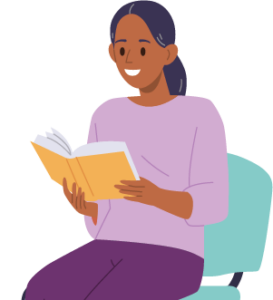 Libraries are a great resource for older people to borrow books, ebooks, eAudiobooks and eMagazines. But libraries also host friendly conversation groups to keep you connected.
Libraries are a great resource for older people to borrow books, ebooks, eAudiobooks and eMagazines. But libraries also host friendly conversation groups to keep you connected.
Some people find that becoming a volunteer at a library is a great way to socialise and make new friends.
Why not boost you brain by learning new things at libraries, such as getting friendly advice about:
- apps on your smartphone or tablet
- our e-Books and audiobooks
- the NHS app and booking online appointments
- paying for parking
- much more.
Find out what’s happening in a library near you.
Overcoming loneliness as we get older
As we get older, we experience ‘life transitions’. These can include the death of a loved one, moving house, becoming a carer, struggling financially or losing touch with friends. If you’re affected by a life transition, there’s help available via our 1Space website. The website also includes a link so you can download the Life Transitions app. The app helps you work independently to identify what life transitions are important to you and access resources to support you. You can then develop a plan to make these transitions as smooth as possible .
Life transition experiences can cause loneliness and can affect anyone at any time. Our Your East Sussex article looks at loneliness and hears one person’s story of how they managed their feelings.
Loneliness is ‘an unwelcome feeling of lack of companionship’, but it is also a normal human emotion. However, continual loneliness can increase the risk of physical and mental health problems like heart disease, high blood pressure and depression.
Three tips for dealing with loneliness
Three tips for breaking the cycle of loneliness:
- Acknowledge it and don’t feel embarrassed. Loneliness is normal and many of us experience it (regardless of age, circumstance and background)
- Identify your support networks. If you’ve been feeling lonely for a long time and it’s affecting your mental health and wellbeing, see your GP
- Think of ways to build connections in your daily life. Speak to the person you bump into at the shop, join a club or activity or start volunteering
Partnership to tackle loneliness
The council has formed a partnership between Public Health, Sussex Community Development Association, the NHS and voluntary and community sector partners. The partnership will help us better understand what can help reduce loneliness across the county.
To get involved or find out more, please contact Gill Reynolds (programme facilitator): Gill.reynolds@sussexcmmunity.org.uk
Main image taken by Cycling Without Age – Seaford Chapter
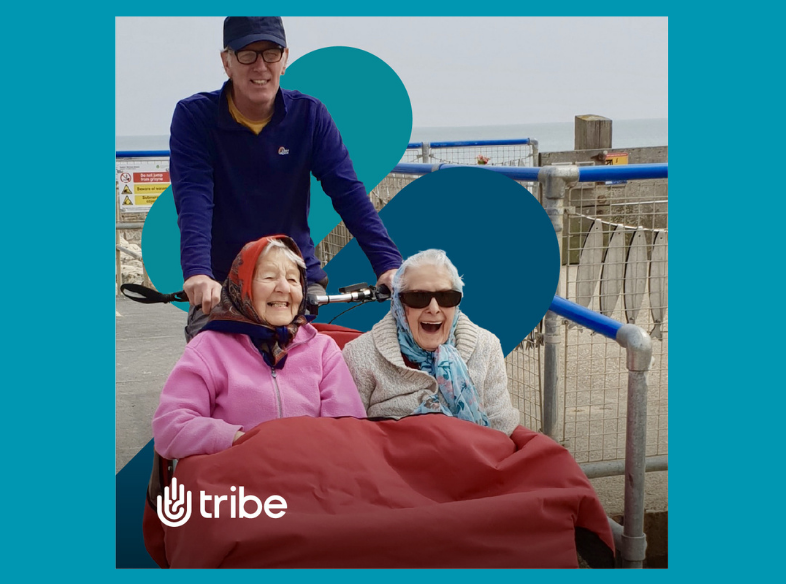
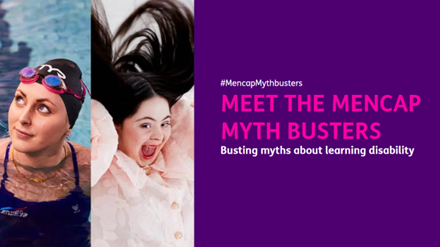



For any cricketers (or ex-cricketers) over 50 why not join the Sussex Seniors cricket club? They have 2 over 50s teams, 5 over 60s and 2 over 70s. They have fixtures through out the season and nets during the winter. Matches are against other counties so there is a fair amount of travelling involved. When I played in away games for the over 70s my wife and I stayed two ir three days in counties we had never been to before (Somerset, Suffolk , Norfolk Hertfordshire for example)
Their web-site is https://sussexover50.play-cricket.com/home